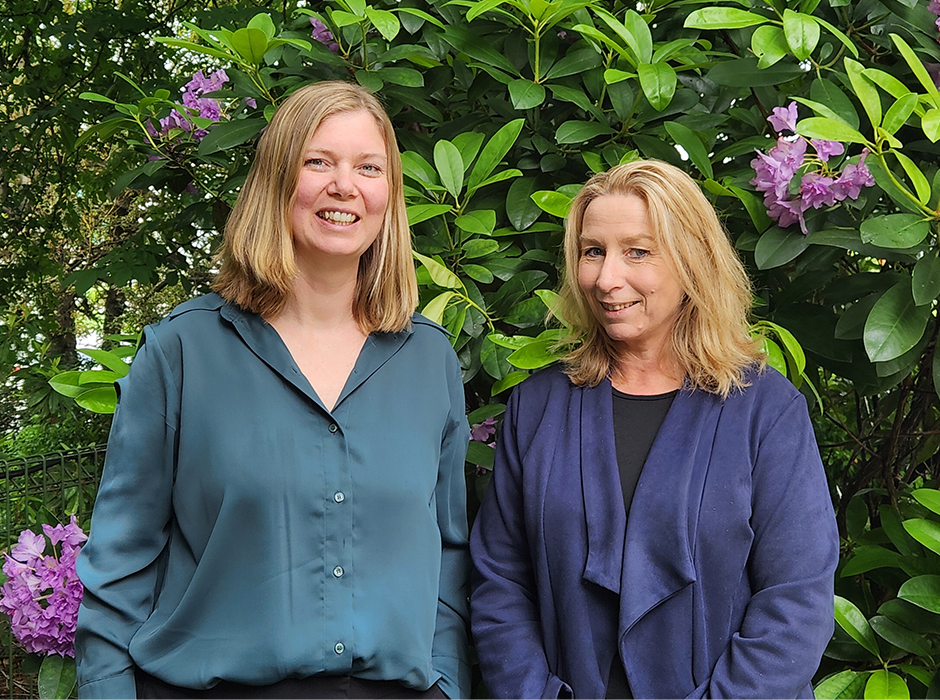
Dr Silke Neumann (left) and Professor Julia Horsfield say grants from Te Pūtea Rangahau a Marsden, the Marsden Fund will support ongoing valuable research.
Receiving two significant Marsden grants this month continues a string of successes for the Dunedin School of Medicine’s Department of Pathology.
Head of Department Professor Julia Horsfield was awarded $941,000 for her work investigating how cohesin organises DNA in neurons, and Dr Silke Neumann received $360,000 to examine the molecular mechanisms driving gastric cancer survival.
Julia says the grants are an important recognition of the high-quality work being produced by members of the department, including early career researchers like Silke.
With only 12 full-time equivalent permanent academic staff members, and about the same number of researchers fully reliant on grant funding for their work, this small department punches above its weight.
As examples, Silke and Research Associate Professor Aniruddha Chatterjee received prestigious Sir Charles Hercus Fellowships last year from the Health Research Council (HRC) and in the same year researchers in Pathology received HRC funding of more than $11 million, from a total pool for the University of Otago of $51 million.
And just last month, Honorary Research Fellow Dr Jim Smith (Te Ātiawa) was awarded the 2024 national Roche Translational Cancer Research Fellowship.
“I’m so proud of our department. We have a really talented new generation of scientists coming through. They are building their careers, but are already at the cutting edge of New Zealand science,” Julia says.
“It’s an absolute privilege to work with early and mid-career researchers that contribute positively to our department culture and help mentor our students. They are so passionate about what they do.”
Julia believes the funding success is due to initiatives such as a grants pitch session where staff shared their proposals.
Silke says Pathology is a collaborative department where staff are connected and happy to support each other.
Her research aims to uncover how a protein-recycling complex in cancer cells impacts survival differently in patients with intestinal and diffuse gastric cancer. By understanding the mechanism behind these opposing effects, the research seeks to generate new knowledge about gastric cancer and identify new ways of treating it.
As part of this work, Silke and members of her research team will visit WEHI in Melbourne to use its advanced lattice light-sheet microscope to view cells in high resolution. She has used the microscope once before and says it will be “very special” to access this Nobel Prize-winning technology again, thanks to the Marsden grant.
Julia’s research will look at how disruptions to the DNA ‘packaging’ alters individual brain cells and their wider connections. It ultimately aims to uncover new insights into neurodevelopmental disorders and develop more effective treatments.
Julia says she has been working on the same protein, cohesin, for more than 20 years, but it does so many things there is still plenty to study, especially with advances in technology.
Her current research is “a new angle in neuroscience and a new angle for me".
Because research funding is limited and very competitive, it’s important to find innovative ways to partner with other teams and to be strategic about what is investigated and why, she says.
Successful research was often built on years of work and understanding and started with small seed funding that gave rise to bigger grants and projects.
Read the overall Marsden grants story
- Kōrero by Andrea Jones, Team Leader, Divisional Communications